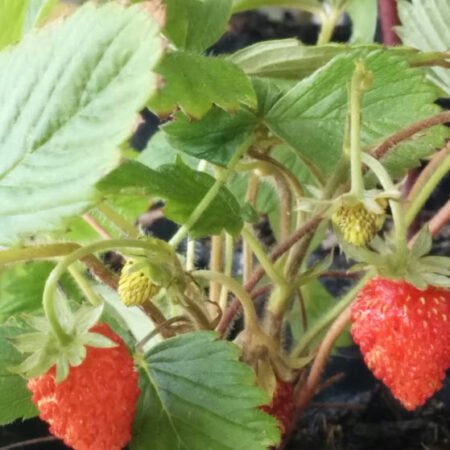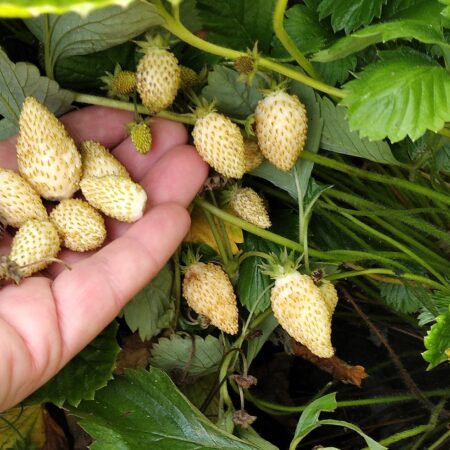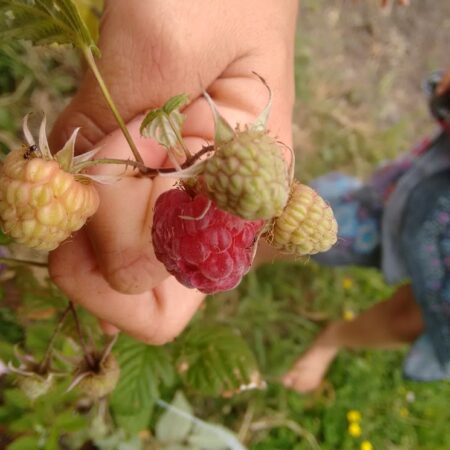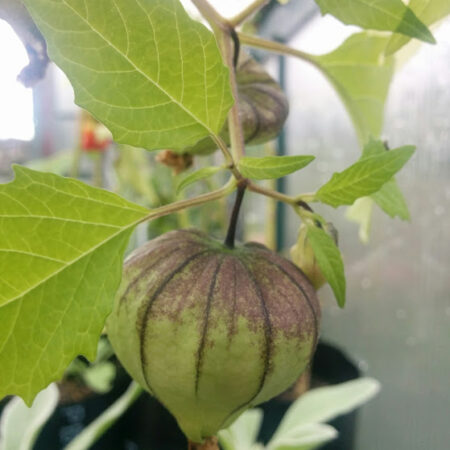Plants that produce berries or fruit.
Showing all 6 results
-

Cape Gooseberry
$8.50Add to cartCape Gooseberry (Physalis peruviana) is a tender perennial (often grown as an annual) in the nightshade family (Solanaceae). It prefers full sun, free-draining soil, and shelter from frost, and in New Zealand it is best grown as a summer annual except in frost-free areas. Plants grow 60–90 cm tall and up to 1 m wide, with papery lantern husks holding golden-orange, tangy-sweet berries. A culinary favourite, eaten fresh, dried, or in jams, sauces, and desserts; a medicinal plant traditionally used for immune and anti-inflammatory support; a cottage garden novelty with its lantern-like husks; and a pollinator-friendly crop, attracting bees to its small yellow flowers.
-

Elderberry
$9.50Add to cartElderberry is a small tree or shrub growing to 6mx6m at a fairly fast rate. The plant is known as the ‘Medicine Chest’ of the country people for its associated medicinal qualities. Note that all parts except the blossoms and the very ripe berries, are poisenous and should not be ingested. The flowers are used a flavouring to make elderflower tea, or elderflower sparkling wine and eldeflower syrups among many other culinary uses. The berries too are made into syrups or brewed into teas.
-

Strawberry – Alpine
$8.50Add to cartAlpine Strawberry is a PERENNIAL growing to 30cm with trifoliate leaves, white flowers and sweet, small strawberry fruit.
Prefers moist well-drained soil in full sun or semi-shade, and can grow in heavy clay soil.
Fruit and leaves are edible and has medicinal use. It is used as a cosmetic herb. -

Strawberry – Alpine White
$8.50Add to cartAlpine Strawberry is a PERENNIAL growing to 30cm with trifoliate leaves, white flowers and sweet, small white when ripe strawberry fruit.
Prefers moist well-drained soil in full sun or semi-shade, and can grow in heavy clay soil.
Fruit and leaves are edible and has medicinal use. It is used as a cosmetic herb.
-

-

Tomatillo – Green Husk Tomato
$7.50Read moreTomatillo is a frost tender ANNUAL growing to 1.2m with compact or upright habit, pubescent stems and broad serrated leavess. The tomatillo fruit is surrounded by an inedible, paper-like husk
Prefers well-drained soil in full sun or semi-shade.
